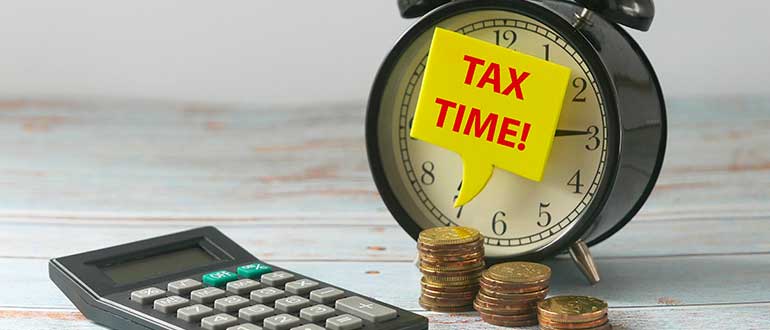
The IRS CP504 tax notice is a notification sent by the Internal Revenue Service (IRS) to taxpayers with unpaid tax debts. The notice serves as a warning that the IRS intends to take legal action to collect unpaid taxes. In this post, we will discuss the frequently asked questions on CP504 notice, including what it is, why you might receive it, and what to do if you receive it.
What Is the IRS CP504 Tax Notice?
The IRS CP504 tax notice is a notification sent by the IRS to taxpayers who owe taxes that have not been paid. The notice is a warning that the IRS is preparing to take legal action to collect unpaid taxes. The notice will contain information about the tax debt owed, including the amount due, penalties and interest charged, and the taxpayer’s rights to dispute the debt.
Why Would You Receive an IRS CP504 Tax Notice?
You may receive an IRS CP504 tax notice if you owe taxes that have not been paid or if you have not filed your tax returns. The IRS typically sends several notices before issuing the CP504 notice, so if you receive it, it means that previous attempts to collect the debt have been unsuccessful. The IRS may also issue the CP504 notice if it believes that the taxpayer is deliberately avoiding payment of taxes.
What Are the Consequences of Receiving an IRS CP504 Tax Notice?
Receiving an IRS CP504 tax notice means that the IRS is preparing to take legal action to collect unpaid taxes. This can include:
- Levying Your Bank Account: The IRS can issue a levy on your bank account to collect unpaid taxes.
- Garnishing Your Wages: The IRS can also issue a wage garnishment order to your employer, which means that a portion of your wages will be sent directly to the IRS to pay the tax debt.
- Seizing Your Assets: In some cases, the IRS may seize your assets, including your home, car, or other property, to pay the tax debt.
- Filing a Tax Lien: The IRS may also file a tax lien against you, meaning it will have a legal claim to your property and assets until the tax debt is paid.
What Should You Do If You Receive an IRS CP504 Tax Notice?
If you receive an IRS CP504 tax notice, the first thing you should do is review the notice carefully. Make sure that the information in the notice is correct and that you understand the amount of the tax debt owed. If you believe that the information in the notice is incorrect, you have the right to dispute it with the IRS.
If you do owe the taxes, you should take immediate action to resolve the debt. You can contact the IRS to discuss payment options, including setting up a payment plan or making an offer in compromise to settle the debt for less than the full amount owed. If you cannot pay the full amount, it is important to contact the IRS as soon as possible to avoid further legal action.
Can You Negotiate with the IRS If You Receive an IRS CP504 Tax Notice?
Yes, you can negotiate with the IRS if you receive an IRS CP504 tax notice. The IRS offers several payment options, including payment plans and offers in compromise, which can help you resolve the debt. You can also negotiate with the IRS to reduce or eliminate the penalties and interest charged on the debt.
It is important to remember that negotiating with the IRS can be a complex process, and it is recommended that you seek the assistance of a tax professional or attorney experienced in dealing with the IRS.
What Are Your Rights If You Receive an IRS CP504 Tax Notice?
As a taxpayer, you have several rights if you receive an IRS CP504 tax notice. These include:
- The Right to Appeal: You have the right to appeal the tax debt if you believe that it is incorrect or if you disagree with the actions taken by the IRS to collect the debt.
- The Right to Request a Payment Plan: You have the right to request a payment plan with the IRS to pay off the tax debt over time.
- The Right to Request a Temporary Delay of Collection: You may be able to request a temporary delay of collection if you are experiencing financial hardship and are unable to pay the tax debt.
- The Right to Seek Assistance: You have the right to seek assistance from a tax professional or attorney who can help you negotiate with the IRS and resolve the tax debt.
It is important to understand your rights as a taxpayer and to exercise them if you receive an IRS CP504 tax notice.
How Can You Prevent Receiving an IRS CP504 Tax Notice?
The best way to prevent receiving an IRS CP504 tax notice is to file your tax returns on time and to pay your taxes when they are due. If you cannot pay the full amount owed, it is important to contact the IRS to discuss payment options before the debt becomes past due.
It is also important to keep accurate records of your tax filings and payments, as well as any communication with the IRS. This will help you to dispute any incorrect information and to provide evidence of your attempts to resolve the debt if necessary.
Receiving an IRS CP504 tax notice can be a stressful and overwhelming experience. However, it is crucial to take immediate action to resolve the tax debt to avoid further legal action by the IRS. By understanding your rights and working with the IRS to negotiate payment options, you can successfully resolve the tax debt and avoid future notices and penalties.
